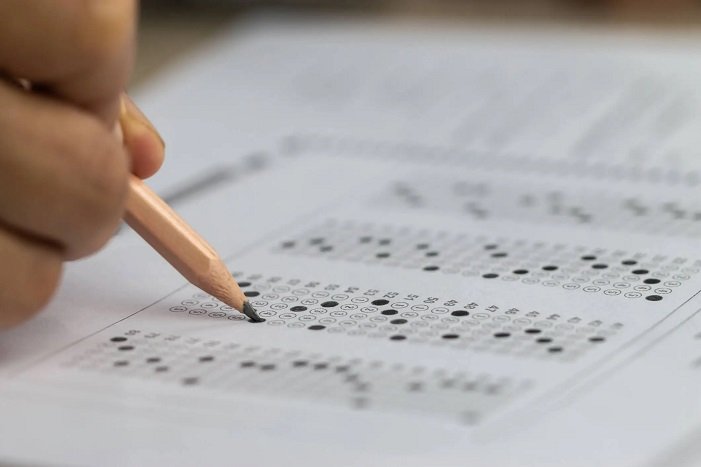
The Examinations Commission is a pivotal entity in the education sector, ensuring that examinations are fair, standardized, and effectively managed. With my extensive experience in this field, I aim to provide a detailed understanding of the functions, responsibilities, and impact of the Examinations Commission in this comprehensive blog post.
What is the Examinations Commission?
The Examinations Commission is a government body tasked with overseeing public examinations. Its primary role is to ensure that exams are conducted fairly and that the results are reliable and valid. The commission typically manages various exams, including secondary school exams, vocational qualifications, and professional certifications.
Key Responsibilities of the Examinations Commission
Setting Exam Standards
Setting the standards for exams is one of the most critical responsibilities of the Examinations Commission. This involves:
- Developing Syllabuses: The commission collaborates with educational experts to create detailed syllabuses for each subject. These syllabuses outline the knowledge and skills students need to acquire.
- Determining Exam Formats: The commission decides on the structure of exams, including the types of questions (multiple choice, essays, practical assessments) and the duration of each exam.
- Setting Grading Criteria: Clear and fair criteria for marking and grading exams are established to ensure consistency across the board.
Administering Exams
Administering exams involves several essential tasks:
- Organizing Exam Schedules: The commission schedules exam dates, ensuring no conflicts and a reasonable spread to reduce student stress.
- Printing and Distributing Exam Papers: Security is paramount. The commission ensures that exam papers are printed securely and distributed to exam centers without any leaks.
- Ensuring Compliance: Exam centers must comply with strict regulations. The commission provides guidelines and conducts inspections to ensure these standards are met.
- Training Examiners and Invigilators: To maintain consistency and fairness, the commission trains those who will oversee the exams.
Marking and Grading
The Examinations Commission oversees the marking process, which includes:
- Recruiting and Training Markers: Qualified individuals are hired and thoroughly trained to mark exam papers.
- Establishing Marking Schemes: Clear marking schemes are developed to guide markers and ensure consistency.
- Conducting Quality Checks: Regular quality checks and mark moderation ensure accuracy.
- Handling Appeals: If students believe their grades are incorrect, the commission has a formal process for appeals and re-checks.
Ensuring Fairness and Transparency
The principles of fairness and transparency underpin all the commission’s activities. This commitment includes:
- Providing Accommodations: The commission ensures that students with special needs receive the necessary accommodations to sit their exams.
- Publicizing Procedures: Clear and accessible information about exam procedures and standards is made available to students, parents, and educators.
- Maintaining Confidentiality: The commission safeguards the confidentiality of exam materials and results, ensuring that the integrity of the exam process is upheld.
Importance of the Examinations Commission
Upholding Educational Standards
The commission plays a vital role in maintaining high educational standards. By setting rigorous and clear criteria, the commission ensures that the qualifications it awards are respected and valued by employers and educational institutions alike.
Supporting Students and Educators
The commission supports both students and educators. For students, the commission ensures that exams are a fair and accurate measure of their knowledge and abilities. For educators, the commission provides guidelines and resources to help them prepare their students effectively.
Enhancing Career Opportunities
By ensuring the validity and reliability of qualifications, the commission enhances career opportunities for students. Employers and further education institutions can trust that candidates with commission-certified qualifications have met high standards.
My Experience with the Examinations Commission
Having worked closely with the Examinations Commission, I have witnessed the meticulous planning and effort that goes into maintaining the exam system. Here are some insights from my experience:
Developing Fair and Challenging Exams
The commission’s process for developing exams is thorough and involves consultation with educators, subject matter experts, and psychometricians to ensure that exams are balanced and reflective of the curriculum.
Ensuring Accurate and Fair Marking
The commission’s commitment to accurate marking involves comprehensive training for markers and stringent quality control measures to ensure that grades reflect students’ true abilities.
Supporting Students with Special Needs
The commission’s dedication to inclusivity includes providing accommodations such as extra time, modified exam papers, and alternative formats to ensure that all students can demonstrate their abilities.
Challenges and Future Directions
Adapting to Technological Advances
One of the significant challenges facing the commission is adapting to technological advances. The integration of digital exams and online marking systems requires careful planning and execution. The commission is working towards embracing these technologies to improve efficiency and accessibility while maintaining security and integrity.
Addressing Exam Stress
Exam stress is a significant issue for many students. The commission recognizes this and is exploring ways to reduce stress, such as spreading out exam dates, providing mental health resources, and promoting a more holistic approach to assessment that includes continuous assessment and project work.
Ensuring Equity
Ensuring equity in education remains a priority for the commission. This involves addressing the needs of students from diverse backgrounds and ensuring that all students have access to the resources and support they need to succeed. The commission is continually reviewing and updating its policies to promote equity and inclusion.
Conclusion
The Examinations Commission is a vital component of the education system, ensuring that exams are fair, standardized, and effectively administered. By setting high standards, maintaining transparency, and supporting students and educators, the commission plays a crucial role in upholding the integrity of the education system. My experience with the Examinations Commission has given me a deep appreciation for the dedication and hard work that goes into maintaining these standards. From developing fair and challenging exams to ensuring accurate marking and supporting students with special needs, the commission’s efforts are essential in ensuring that the qualifications it awards are respected and valued.




